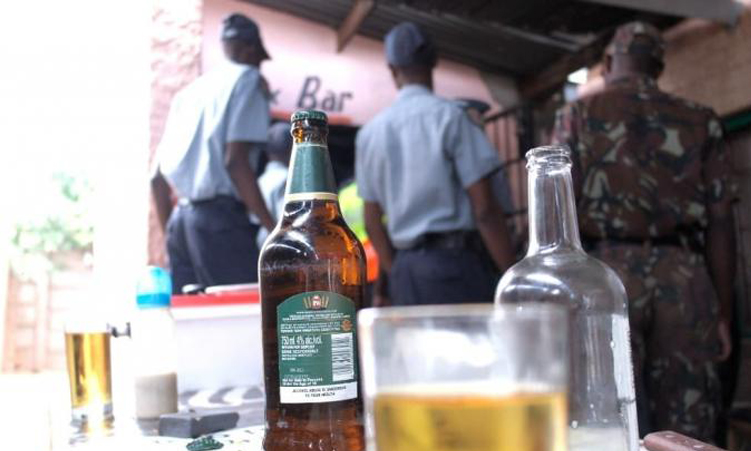HARARE – Zimbabwe’s power-sharing government is rocked by quarrels over reforms and sanctions, raising doubts over the new administrations’ ability to rebuild the shattered economy.
Arch rivals President Robert Mugabe and Prime Minister Morgan Tsvangirai’s power-sharing agreement raised hopes that a new leadership could end a decade of political and economic crises which had ruined one of Africa’s most promising nations.But political analysts say tensions over fresh elections – probably in the next two or three years – is hampering cooperation between Mugabe’s ZANU-PF and Tsvangirai’s Movement for Democratic Change (MDC) in the six-month-old government.’Nobody really trusts anyone in this, and there is more competition than cooperation,’ said Eldred Masunungure, a political science professor at the University of Zimbabwe.’In most cases, parties are taking positions for perceived advantage, and the economy is not getting the concerted support it needs for a quick recovery.’Analysts say while rival officials worked fairly closely early on to help stem economic decline, many are now locked in an undeclared political war that could keep Western donors and foreign investors who want stability away.John Robertson, a leading economic consultant, says the MDC’s control of many government economic departments should give it an edge in pushing reforms.FRUSTRATED MDCBut that would also require cooperation from Zanu-PF which has a firm grip on powerful security ministries, including police and defence.Critics say Mugabe is trying to undermine the MDC by sowing divisions in opposition ranks and whittling down its numbers in parliament before any election.A drawn-out feud over the appointment of some senior state officials allied to Mugabe’s Zanu-PF party, including central bank governor Gideon Gono and Attorney-General Johannes Tomana, has left the MDC angry but looking impotent.’The MDC’s frustration is their discovery now that they don’t have all the power they thought they would get in this government,’ said Lovemore Madhuku, chairman of political pressure group National Constitutional Assembly.’On the other hand, Zanu-PF is also discovering that they have to do some things differently,’ he said. ‘There is some sense of paralysis in the whole government in terms of moving the economy in the big way that the MDC was talking about before getting into the government.’Western donors say they will only give Zimbabwe support needed to rebuild pot-holed roads, bare hospitals and dilapidated schools and to ease 90 per cent unemployment when the new administration has implemented radical reforms, including freeing the media and stopping seizures of white-owned farms.The unity government says it needs about US$10 billion in foreign aid to help repair an economy which last year suffered an inflation rate of over 231 million per cent and forced Harare to adopt the use of foreign currency to stem a spiral that had rendered the Zimbabwe dollar almost worthless.Mugabe, 85 and in power since independence from Britain in 1980, says Zimbabwe’s economy, which has shrunk by over 70 per cent in 10 years, is a victim of sabotage by Western forces opposed to his redistribution of farms.Many Western countries imposed sanctions on Mugabe’s ZANU-PF government over charges of human rights abuses, vote-rigging and its seizures of white-owned commercial farms for redistribution to blacks without paying compensation.Zanu-PF is now piling pressure on the MDC to campaign for an end to financial sanctions and a travel ban on Mugabe’s leadership, which could help economic recovery efforts.’As long as the financial sanctions remain, there will be no finance in the country and without finance there will be no meaningful reform,’ Jonathan Moyo, Mugabe’s former information minister, wrote in a private weekly last Thursday.’And that will render the inclusive government a disaster in the next six months.’John Makumbe, a Mugabe critic and political commentator, says although Zimbabwe’s coalition is shaky, the MDC was likely to stay in it because it would get credit for any turnaround in the economy, with its control of the finance ministry.’It may not come now or as fast as we want, but it will come,’ he said.Others believe all the parties are stuck in the coalition.’This is like a very troubled marriage where partners are constantly bickering,’ Masunungure said.’But it is also a marriage which holds together on fears of what a quick divorce may bring to each party.’ – Nampa-Reuters
Stay informed with The Namibian – your source for credible journalism. Get in-depth reporting and opinions for
only N$85 a month. Invest in journalism, invest in democracy –
Subscribe Now!






